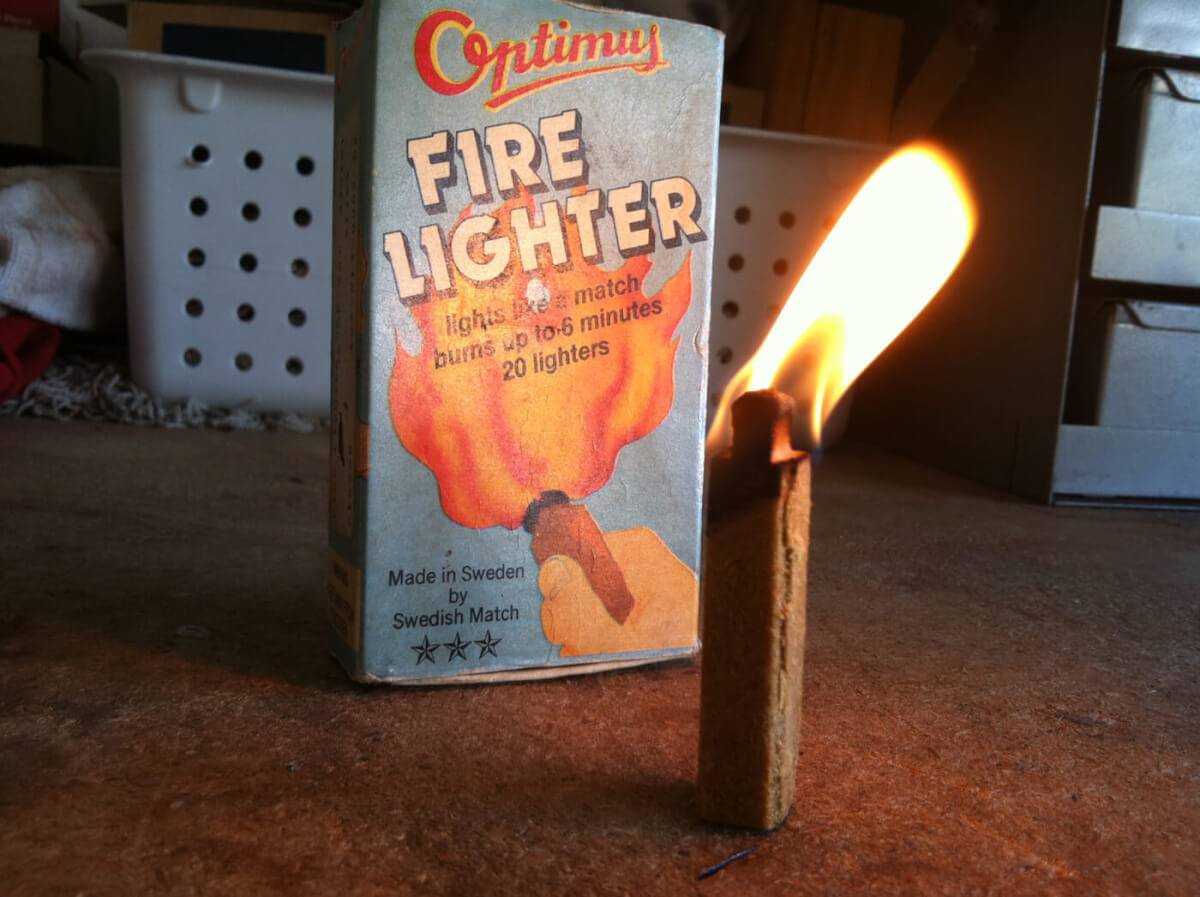Like a lot of people, I tend to never throw anything away. Thanks to my parents, I have the mindset that I might need it later regardless of what it is — old car parts, books, maps, broken tools — and this is both good and bad.
Having a big garage with lots of storage space means I have quite a cache of various gear I’ve collected over the years, all of which might come in handy at some point in my life; but it is bad because, most times, I either forget that I have it or where I put it and, when I need it, I have to buy a new one. Most times, when I’m not thinking about it or working on something completely different, I’ll discover it many years later.
Take, for example, this box of Optimus Fire Lighter matches made by Swedish Match, a company that has been making tobacco products and matches in Sweden for 100 years (now partly owned by Volvo). I bought these when I was a Boy Scout sometime in the mid-80s. We were a troop that did a lot of camping and trail work, and for whatever reason, I thought they would come in handy, picturing myself stuck in the depths of a snowdrift and armed only with these matches and a deep desire to stay alive. Of course, when I opened the box some 30 years later, not a single match had been used and I couldn’t recall an experience that they would have come in handy. I was never lost while hiking, nor had I ever been involved in any sort of life-threatening situation that required me to start a fire in adverse weather. Plus, I always carried a lighter and regular matches with me when we camped. I literally had no need for them, but why throw them out? After I earned my Eagle and went off to college they were packed away with my old backpack and currently reside on a hook on the wall of my garage. Digging through some old camping gear a few weeks ago looking for a small camping stove, I came across this box of matches and a flood of memories came with it.
Realizing I hadn’t used any of them, ever, I wondered if they still worked. Matches don’t really have an expiration date, but over time, they can soak up moisture from the air and lose their striking effectiveness, keeping the phosphorus from catching fire (from the friction caused by rubbing the glass powder on the tip). Though the box had been wet at some point and the striking strip was damaged from being stored for so long, the matches on the inside — coated with a wax — looked fine. I broke off one, and as the picture tells the tale, struck it on the box and it fired on the first attempt. True to the advertising, the match burned bright for nearly eight minutes. Is it a testament to quality production values or proper storage? Either way, some things in your equipment supply aren’t designed to last that long.
Expiration Dates
This being said, not everything in your supply will last the test of time, specifically water and food. Pay attention to the expiration dates on your supplies so they won’t ever go bad. The last thing you’d want is to be in need and not be able to use it because it had gone bad years ago. This might sound like strange advice, but if you use Outlook (or another email program that has calendar and scheduling functions) set an appointment to replace your supplies. Typically, the water pouches included in most emergency kits have a five-year shelf life. So, depending on the expiration date and the date of purchase, whenever you buy something that has a shelf life, simply set an appointment in advance to change it out. For example, five years from now my Outlook calendar will remind me to check the expiration date on my emergency kit in the downstairs closet. At that time, I’ll determine what needs replacing.
Editor’s note: A version of this article first appeared in the March 2015 issue of American Survival Guide.


